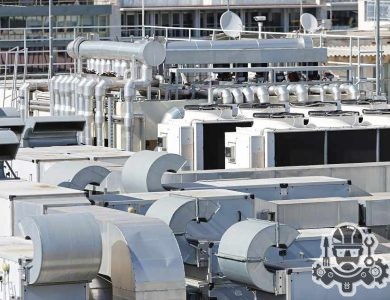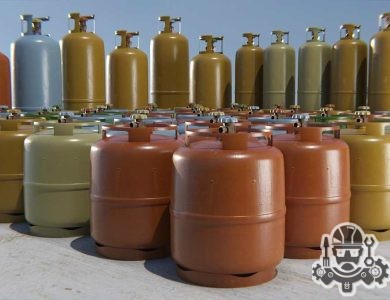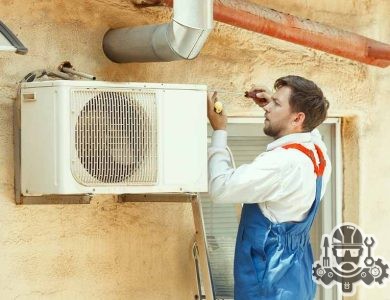Benefits Of Installing An Air Conditioning

Benefits Of Installing An AC Unit
During hot summer days, an air conditioning system can be a lifesaver. While fans can circulate air in your home, they do not cool the air. An AC unit is a must-have appliance in regions that experience high temperatures during the summer. Here are some benefits of installing an AC unit in your home:
1. Comfort: An AC unit cools the indoor environment, making it comfortable to live in. It regulates the temperature, humidity, and the quality of air in your home. This is especially beneficial for people who have respiratory problems, as the AC helps in removing pollutants and allergens from the air.
2. Improved Sleep: A comfortable temperature in your room is essential for a good night’s sleep. AC units regulate the temperature, creating a perfect sleeping environment. A good night’s rest improves concentration, productivity, and happiness.
3. Health Benefits: Installing an AC unit can improve overall health, especially during summer. Extreme heat can cause dehydration, heat exhaustion, and heat stroke. An AC unit prevents these health conditions by maintaining a cool temperature in your home. Additionally, it helps in preventing mold, mildew, and other allergens from developing in your home.
| Fan | Air Conditioner |
|---|---|
| Can only circulate air | Can cool and circulate air |
| Cannot regulate temperature and humidity | Can regulate temperature and humidity |
In conclusion, installing an AC unit in your home has numerous benefits. It improves your comfort, enhances your sleep quality, and promotes better health. When selecting an AC unit, it is important to choose one that is energy-efficient to reduce energy costs. Proper maintenance is also essential in ensuring that your AC unit lasts longer.

Contents
- 1 Different Types Of Air Conditioning Systems
- 2 Factors To Consider While Selecting An AC
- 3 Proper Maintenance Of Your Air Conditioning System
- 4 Signs That Your AC Needs Repair
- 5 Simple Fixes For Common AC Problems
- 6 Energy Efficiency And Cost Savings
- 7 Frequently Asked Questions About Air Conditioning
- 8 New Innovations in Air Conditioning Technology
- 9 The Future Of Air Conditioning Systems
Different Types Of Air Conditioning Systems
There are different types of air conditioning systems available in the market to suit various needs and requirements. Choosing the right system can depend on factors such as room size, budget, and energy efficiency. In this article, we will discuss the various types of air conditioning systems.
| Type | Description | Pros | Cons |
|---|---|---|---|
| Split-system air conditioners | The most common type, with a separate indoor unit that blows cool air and an outdoor unit that removes heat. | Easy installation, quiet operation, energy-efficient. | Expensive, requires frequent maintenance, difficult to repair. |
| Window air conditioners | A single unit that is mounted in a window or through a wall to cool a room or smaller apartment. | Easy installation, affordable, can be moved from room to room. | Noisy, less energy-efficient, can be bulky. |
| Portable air conditioners | Similar to window units, but can be moved from room to room and do not require permanent installation. | Easy to move, less noisy than window units, affordable. | Less energy-efficient, might not cool larger rooms as effectively. |
| Ducted air conditioning systems | A centralized system that provides cool air to an entire house or building through ducts. | Energy-efficient, less visible, can cool larger spaces. | Expensive, requires duct installation, can lead to indoor air quality issues if not maintained properly. |
Choosing the right type of air conditioning system can depend on personal preferences, budget, and the size of the space to be cooled. It is important to consult with a professional before making any decisions to ensure that the system will be suitable for the specific needs of the user. Regular maintenance and cleaning of the air conditioning system can help improve its efficiency and lifespan.
Factors To Consider While Selecting An AC
Choosing an air conditioning unit can be a daunting task, especially if you are not familiar with the different types of AC systems and their features. However, with a little bit of knowledge and some careful consideration, it is possible to select an AC unit that is perfect for your needs. Here are some important factors to consider while selecting an AC:
| Factor | Description |
|---|---|
| Type of AC system | There are various kinds of AC systems, including central air conditioning, window AC units, portable units, and ductless mini-split systems. Each has its pros and cons, and you need to choose the one that best suits your needs. |
| Size of the unit | The size of the AC unit needs to match the size of your room. A unit that is too small will not cool the room efficiently, while a unit that is too big will consume more energy and result in higher energy bills. |
| Energy efficiency rating | The energy efficiency rating of an AC unit is an important consideration, as it affects the unit’s energy consumption and your utility bills. Look for AC units that have high SEER ratings, as they are more energy-efficient and cost-effective in the long run. |
| Noise level | If you plan to install the AC unit in a bedroom or a quiet area, you need to choose a unit that operates quietly. Look for units that have lower decibel ratings. |
| Brand reputation | Choose an AC unit from a reputable brand that offers good customer service and support. Read reviews and testimonials from other users to ensure that you select a reliable and durable unit. |
| Price | The cost of the unit is also an important factor to consider. However, it is not advisable to select a unit solely based on its price. Look for a unit that offers good value for money, with a balance of features, performance, and price. |
With these factors in mind, you can make an informed decision while selecting an AC unit that meets your needs and budget. Remember to also consider maintenance and repair costs, as well as the availability of replacement parts for the unit. By selecting the right AC system, you can enjoy cool and comfortable indoor temperatures all year round.
Proper Maintenance Of Your Air Conditioning System
Proper maintenance of your air conditioning system is crucial for the performance and longevity of the unit. Neglecting maintenance schedules can lead to reduced efficiency, higher energy bills, and even premature breakdowns. Here are some tips to help you ensure your AC unit remains in top condition:
1. Regularly replace filters
Filters are responsible for trapping dirt, dust, and other small particles that circulate in the air. Over time, the filter becomes clogged, making it difficult for air to pass through. This can put a strain on the AC system and reduce its efficiency. Experts recommend replacing filters every 1-3 months, depending on usage and the type of filter.
2. Clean the coils
The evaporator and condenser coils collect dirt and debris over time, which can lead to reduced airflow and strain on the compressor. Cleaning the coils regularly can help maintain the system’s efficiency. You can use a soft brush or vacuum cleaner to remove the dirt, or hire a professional to do it for you.
3. Check the refrigerant levels
Low refrigerant levels can cause the AC system to function improperly and increase energy bills. A qualified technician can check the refrigerant levels and recharge if necessary. However, if the refrigerant level is constantly low, there may be a leak that needs to be repaired.
| Task | Recommended Frequency |
|---|---|
| Replace filters | Every 1-3 months |
| Clean the coils | Annually |
| Check the refrigerant levels | Annually |
By following these maintenance tips, you can ensure that your air conditioning system is running smoothly and efficiently. Remember to hire a qualified technician to service your AC unit if you encounter any problems or if your unit requires complex maintenance tasks.
Signs That Your AC Needs Repair

If you have an air conditioning unit in your home or office, it’s important to keep it in good working order. An AC unit that isn’t functioning properly can lead to a lot of discomfort during hot weather. One of the key factors in maintaining your AC unit is knowing when it needs repairs. Here are some signs that your AC needs repair to keep you cool and comfortable all year long:
- Warm air: If your AC is blowing warm air, there could be a problem with the compressor or refrigerant levels.
- Frequent cycling: If your AC is turning on and off frequently or not cycling at all, it may be a sign that there’s a problem with the thermostat or electrical system.
- Inconsistent cooling: If one room in your home is much cooler or warmer than the others, it could be a sign that there’s a problem with the ductwork or unit itself.
If you notice any of these signs, it’s important to contact an AC repair professional as soon as possible to avoid further damage. Ignoring these signs can lead to more expensive repairs down the line, or even a complete replacement of your AC unit.
| Problem | Possible Cause | Solution |
| AC isn’t cooling | Refrigerant leak, clogged air filter, compressor issues | Have a professional inspect and repair the unit |
| Strange noises | Belt or bearing issues, loose parts | Contact a professional to diagnose and fix the problem |
| Unpleasant odors | Mold or bacteria growth in the unit or ductwork | Have the unit professionally cleaned and sanitized |
Regular maintenance and inspection can help prevent AC repair needs, but it’s still important to be aware of these signs so you can take action quickly when they appear. Keep your AC unit running smoothly, and enjoy cool and comfortable air all summer long.
Simple Fixes For Common AC Problems
When temperatures rise, air conditioning becomes an essential part of many people’s daily lives. However, like all appliances, AC units can malfunction or develop problems that can cause them to work inefficiently. While some issues require professional assistance, many common AC problems can be solved by simple fixes that anyone can perform.
A common problem with air conditioning units is a clogged or dirty filter. This can lead to reduced airflow and the unit not cooling properly. Fortunately, this is an easy fix as all you need to do is replace or clean the filter regularly. This simple maintenance task can help prolong the lifespan of your AC unit while also ensuring efficient operation.
| Issue | Solution |
|---|---|
| The AC is not turning on | Check the thermostat batteries and settings, check the circuit breaker, and ensure the air filter is clean. |
| There’s warm air coming from the AC | Check the air filter, thermostat settings, and refrigerant levels, and clean the condenser coils. |
| Water is leaking from the unit | Check the drain lines and ensure they are not blocked or disconnected. Clean the condensate pan and check for any cracks or damage. |
Another common issue with AC units is a frozen evaporator coil. This can cause reduced airflow and the AC to stop cooling. While there are several things that can cause this problem, one of the most common is blocked or dirty air filters. However, other issues such as low refrigerant levels, faulty thermostats, or damaged blower motors can also cause the coils to freeze. To fix this issue, switch off the AC unit and let it defrost before turning it on again. If the problem persists, contact an HVAC professional.
There are several other common AC problems that can be fixed with simple solutions. For example, if the AC is not turning on, check the thermostat batteries and settings, circuit breaker, and ensure the air filter is clean. If there’s warm air coming from the AC, check the air filter, thermostat settings, and refrigerant levels and clean the condenser coils. Lastly, if water is leaking from the unit, check the drain lines, clean the condensate pan, and ensure there are no cracks or damage.
In conclusion, while significant AC issues require the assistance of a professional, many common problems can be fixed with simple solutions. Regular maintenance, such as cleaning or replacing air filters, can also go a long way in preventing these issues from occurring in the first place. By following these simple steps, you can keep your AC unit running smoothly and ensure you stay cool and comfortable during hot summer months.
Energy Efficiency And Cost Savings
When it comes to air conditioning systems, one of the most important factors to consider is energy efficiency. An efficient system not only ensures that you’re getting the most out of your investment, but it also helps you save on electricity bills in the long run. Here are some tips on how to maximize your AC’s energy efficiency:
1. Choose the right type of AC system: There are various types of AC systems available, but not all of them are suitable for everyone. Depending on your needs, you can choose from central air conditioning, window units, portable ACs, or ductless mini-splits. Each system has its own advantages and disadvantages, so make sure to research each option before making a decision.
2. Maintain your system regularly: Proper maintenance is key to ensuring that your AC system operates efficiently. Regularly cleaning or replacing air filters, checking for leaks, and cleaning the evaporator and condenser coils can go a long way in increasing your AC’s energy efficiency and reducing overall energy costs.
| AC Maintenance Checklist | Frequency |
|---|---|
| Clean or replace air filters | Every 30-60 days |
| Clean evaporator and condenser coils | Once a year |
| Check for refrigerant leaks | Once a year |
3. Use a programmable thermostat: Programmable thermostats allow you to set specific temperatures for different times of the day, which can help reduce energy usage when you’re not home. For example, you can set the temperature to be slightly warmer during the day when you’re at work and cooler at night when you’re sleeping.
By following these tips, you can ensure that your AC system operates efficiently and saves you money on energy costs. If you’re unsure about which AC system to choose or how to properly maintain your current system, it’s always a good idea to consult with a professional HVAC technician.
Frequently Asked Questions About Air Conditioning
Air conditioning systems have become one of the most essential appliances in every household. It plays a vital role in maintaining comfort inside the home, especially during hot and humid weather. While there are a lot of benefits of having an AC unit installed, many people still have questions and uncertainties about it. Here are some frequently asked questions about air conditioning:
1. How often should I replace my AC unit?
On average, air conditioning units have a lifespan of 10-15 years. However, its longevity may depend on various factors, such as usage, maintenance, and the quality of the unit itself. If your unit is more than 10 years old and requires frequent repair, it might be best to consider replacing it.
2. Can I install the AC unit myself?
While DIY installation might be possible, it is highly recommended to have a licensed technician install your AC unit. They have the proper knowledge and equipment to ensure that your unit is installed correctly, efficiently, and safely.
3. How often should I clean my AC unit?
| Type of AC Unit | Frequency of Cleaning |
| Window AC Unit | Every 2 months |
| Split AC Unit | Every 3-4 months |
| Ducted AC Unit | Every 6 months |
The frequency of cleaning your AC unit may vary depending on the type of unit you have. However, as a general rule, it is recommended to clean your AC unit every 2-6 months to maintain its efficiency and prolong its lifespan.
4. How can I improve the efficiency of my AC unit?
- Regularly clean and replace the air filter
- Ensure that the vents and evaporator are clean and unobstructed
- Maintain the appropriate temperature settings
By doing these simple tasks, you can improve your AC unit’s efficiency, reduce energy consumption, and save costs on repair and maintenance.
These are just some of the frequently asked questions about air conditioning. If you have more questions or concerns, it is best to consult a licensed technician or a trusted AC manufacturer for advice.
New Innovations in Air Conditioning Technology
With the modern-day advancements in technology, air conditioning has come a long way from where it started. From traditional units that were bulky, noisy, and energy-draining, to today’s sleek and sophisticated devices, the evolution has been remarkable. In this blog post, you’ll learn about the new innovations in air conditioning technology and how they are revolutionizing the way we cool our homes, office spaces, and vehicles.
One of the latest technologies in air conditioning is the introduction of smart thermostats. These thermostats can be remotely controlled using a smartphone or tablet, making it easier and convenient to operate your AC unit from almost anywhere. Additionally, most smart thermostats come with features such as learning your cooling preferences and suggesting energy-saving adjustments, thereby reducing energy consumption.
The use of inverter technology in air conditioning is also growing in popularity. Inverter technology allows AC units to vary their cooling capacity to meet the desired temperatures more efficiently. When a room reaches the desired temperature, the inverter automatically adjusts the compressor speed to maintain that temperature level. This ensures that you don’t waste energy because the compressor doesn’t keep running when it’s not necessary.
| New Innovations | Description |
|---|---|
| AI-Assisted Air Conditioning | Artificial intelligence is being integrated into air conditioning technology in various ways. For instance, AC units can sense when someone is in the room and adjust cooling levels accordingly. AI can also help in diagnosing and fixing malfunctions faster, reducing service calls. |
| Solar-Powered Air Conditioning | Solar-powered air conditioning units are perfect for people living in areas with high solar radiations. The technology uses solar panels to generate electricity, which powers the air conditioner. This is an eco-friendly solution and can help reduce energy costs significantly. |
In conclusion, these new innovations in air conditioning technology are making our lives easier, more comfortable, and energy-efficient. It’s essential to keep up with these advancements to better care for your AC units, whether it’s through smart thermostats or solar-powered systems. Consult with a professional when it comes to installation and maintenance to ensure that you get the most out of these new technologies.
The Future Of Air Conditioning Systems
Nowadays, it’s almost impossible to imagine our lives without air conditioning. It has become an essential part of our everyday life that keeps us comfortable no matter the weather outside. However, as the world evolves, so does technology. The future of air conditioning systems is an exciting prospect that’ll revolutionize the way we keep cool.
Smart AC Systems: One of the most significant changes in air conditioning technology is the implementation of smart AC systems. It’s expected that thermostats will be in every home within the next few years. Smart ACs will have a range of features such as voice activation, learning capabilities, and energy-saving options. It’s anticipated that these systems will be more energy-efficient and save the consumers a significant amount of money in the long run.
| Benefits of Smart ACs: | 1. Energy-efficient | 4. Better air quality control |
|---|---|---|
| 2. Cost savings | 5. Compatibility with smart homes | |
| 3. Easy-to-use | 6. Voice-activated controls |
Environmentally Friendly AC Systems: The world is becoming increasingly mindful of the environment, and the air conditioning industry is no exception. One of the most significant changes in the industry is the shift towards more environmentally friendly refrigerants. These refrigerants have a lower impact on global warming and can reduce the carbon footprint of air conditioning systems.
- Advantages of eco-friendly refrigerants:
- 1. Reduced carbon footprint
- 2. Better for the environment
- 3. Less harmful to humans and animals
- 4. More efficient than traditional refrigerants
Integration with Renewable Energy: The use of renewable energy sources such as solar power can significantly reduce the carbon footprint of air conditioning systems. AC units will soon be integrated with solar panels to power the entire cooling system. This technology is already available but is not yet widely used. However, we can expect it to become more widespread, and soon enough, every home will have a self-sufficient cooling system.
The future of air conditioning systems is bright. As technology advances, we can expect to see environmentally friendly and more energy-efficient AC units that’ll save consumers money and reduce their carbon footprint. These systems will be integrated with renewable energy and smart technology, making them easier to use and more accessible to the general public. It’s an exciting time, and we can’t wait to see what the future holds.
During hot summer days, an air conditioning system can be a lifesaver. While fans can circulate air in your home, they do not cool the air. An AC unit is a must-have appliance in regions that experience high temperatures during the summer.
If you have an air conditioning unit in your home or office, it's important to keep it in good working order. An AC unit that isn't functioning properly can lead to a lot of discomfort during hot weather. One of the key factors in maintaining your AC unit is knowing when it needs repairs.
When it comes to air conditioning systems, one of the most important factors to consider is energy efficiency. An efficient system not only ensures that you're getting the most out of your investment, but it also helps you save on electricity bills in the long run. Here are some tips on how to maximize your AC's energy efficiency:



